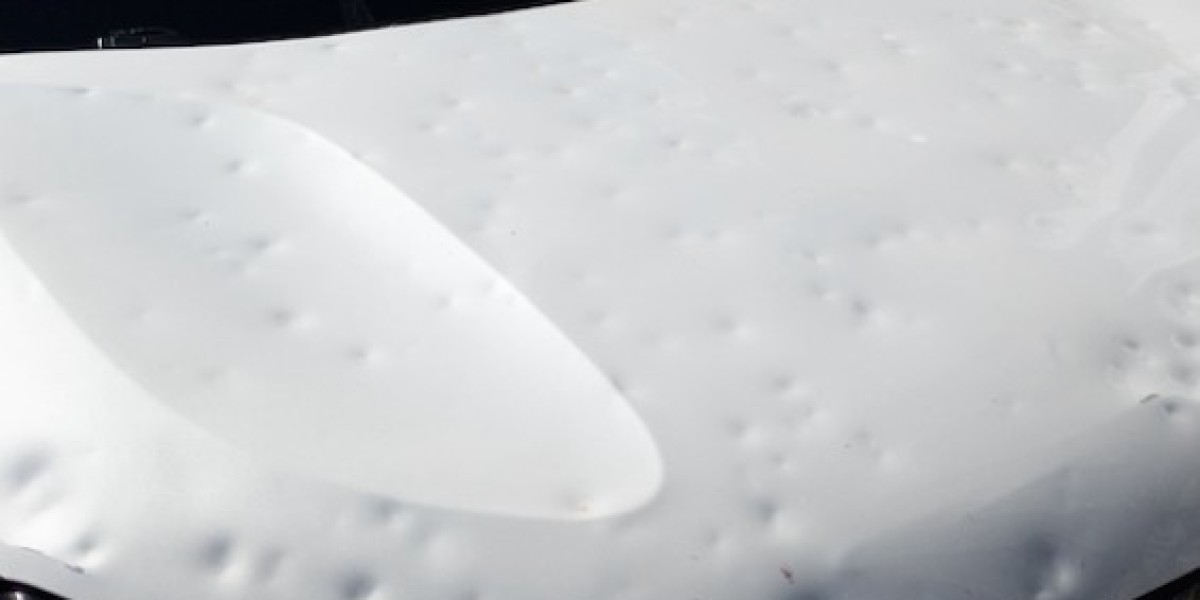Hailstorms can strike without warning, leaving a trail of dents, dings, and damage on vehicles. While it may seem like a minor cosmetic issue, auto hail damage repair is essential to maintain both the appearance and value of your car. Ignoring hail damage can lead to long-term problems, especially when moisture or rust sets in. Understanding the importance of timely and professional hail repair can save time, money, and stress in the long run.
What Happens During a Hailstorm?
During a hailstorm, ice balls varying in size can fall at high speeds, impacting the surface of your car. Even small-sized hail can create visible dents, especially on the hood, roof, and trunk. In more severe storms, the impact can crack windshields and damage mirrors or trim.
Modern vehicles are made with thin metal panels that are particularly susceptible to denting. Hail can easily deform these panels, and over time, those minor dents may weaken the structural integrity of the vehicle.
Why Auto Hail Damage Repair Is Crucial
Preserving Vehicle Value
Whether you're planning to sell your vehicle soon or later, visible hail damage will significantly reduce its resale value. Buyers are less likely to pay top dollar for a car that appears poorly maintained.Insurance Claims
Most insurance companies cover hail damage under comprehensive policies. However, they often require damage to be repaired quickly to avoid denying future claims related to the same incident.Preventing Further Damage
Unrepaired hail dents can become starting points for rust, especially if the paint has been cracked. Once rust begins, it can spread beneath the surface, creating more expensive issues down the road.Restoring Aesthetic Appeal
A hail-damaged car just doesn't look good. Restoring your vehicle’s clean and dent-free look adds to your confidence and pride of ownership.
Common Methods of Hail Damage Repair
Paintless Dent Repair (PDR)
This is the most popular and cost-effective method used today. PDR involves massaging the dented panels from the inside using special tools, without affecting the factory paint.
Benefits:
No need for fillers or repainting
Retains original paint finish
Eco-friendly
Quicker turnaround time
Traditional Bodywork
For more extensive damage, especially when the paint is cracked or chipped, traditional repair methods may be needed. This involves filling dents with body filler, sanding, priming, and repainting.
Best for:
Severely damaged panels
Areas with chipped or cracked paint
When PDR isn't viable
The Auto Hail Damage Repair Process
Assessment
A technician evaluates the extent of damage and determines the right approach for repair.Insurance Coordination
Many repair shops work directly with insurance companies to make the process smoother for the car owner.Repair and Quality Check
Depending on the damage, PDR or traditional repair is applied. A thorough quality check ensures the vehicle looks and performs like new.Final Detailing
After repairs, many shops include detailing to clean the car and give it a polished finish.
Choosing the Right Auto Hail Repair Shop
When selecting a repair service, look for:
Certified technicians with PDR expertise
Warranty or guarantee on repairs
Positive customer reviews
Insurance claim assistance
Avoid shops that offer “quick fixes” or use drilling or glue-based tools that may void manufacturer warranties.
Conclusion
Auto hail damage repair is more than just a cosmetic fix — it’s an investment in your vehicle’s health and value. With methods like paintless dent repair becoming more efficient and accessible, there’s no reason to delay fixing hail damage. Always choose a trusted repair provider and act promptly after a hailstorm to avoid future complications and protect your vehicle’s longevity.






